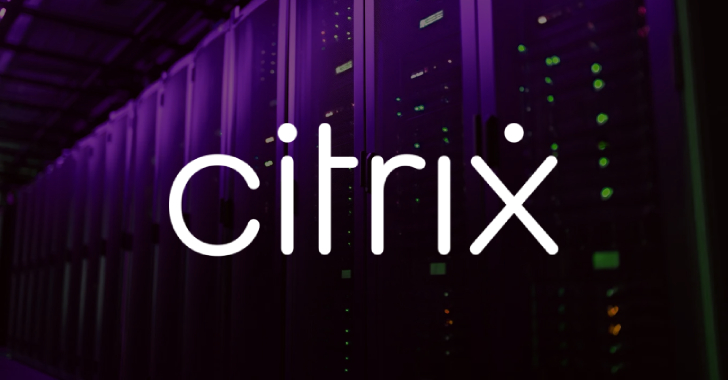
CMMC Compliance: Setting the Gold Standard in Defense Contracting
In an era where cybersecurity threats are evolving at an alarming rate, protecting sensitive government information has become paramount. The U.S. Department of Defense (DoD) recognizes this urgency and has taken significant steps to fortify its cybersecurity posture. One such initiative is the Cybersecurity Maturity Model Certification (CMMC), which has quickly become the gold standard in defense contracting.
A Brief Introduction to CMMC
The CMMC is not just another acronym in the realm of cybersecurity; it represents a comprehensive framework designed to safeguard sensitive information across the defense industrial base (DIB). The DIB encompasses a vast network of contractors and subcontractors who support the DoD’s mission, making it a prime target for cyber threats.
The CMMC framework comprises five levels, each representing a different tier of cybersecurity maturity, from basic hygiene to advanced practices. To participate in DoD contracts, organizations must achieve a specific CMMC level, depending on the nature of the work they perform and the sensitivity of the information they handle.
Why CMMC Matters
- Enhancing Cybersecurity Resilience: The CMMC framework is a robust response to the ever-evolving landscape of cyber threats. By mandating various security practices and controls, it ensures that organizations are better prepared to defend against both common and sophisticated attacks.
- Protecting Sensitive Information: The DoD handles an abundance of sensitive data, from military plans to personal information of service members. CMMC helps protect this information by requiring strict controls and continuous monitoring.
- Ensuring Supply Chain Security: The defense supply chain is only as strong as its weakest link. CMMC raises the cybersecurity bar for all organizations within the DIB, reducing the likelihood of breaches originating from subcontractors or suppliers.
- Global Competitiveness: Achieving CMMC compliance can make organizations more competitive on a global scale. It demonstrates a commitment to cybersecurity and positions them as reliable partners for defense contracts.
The Five Levels of CMMC
- Level 1: Basic Cyber Hygiene: At this level, organizations must implement basic cybersecurity practices, such as using antivirus software and conducting employee security awareness training.
- Level 2: Intermediate Cyber Hygiene: Building on Level 1, Level 2 introduces more stringent controls. Organizations are required to establish and document their policies and practices.
- Level 3: Good Cyber Hygiene: Level 3 marks a significant step forward. Organizations must implement an array of security measures and processes and establish a plan for managing their cybersecurity program.
- Level 4: Proactive: At this level, organizations are expected to have an advanced cybersecurity program in place. Continuous monitoring and real-time response capabilities become critical.
- Level 5: Advanced/Progressive: The highest level of CMMC, Level 5, signifies the pinnacle of cybersecurity maturity. Organizations must have a comprehensive and adaptive cybersecurity program capable of defending against the most sophisticated threats.
The Road to CMMC Compliance
Achieving CMMC compliance is not a simple task, but it’s an essential one for defense contractors. The process can be broken down into several key steps:
- Assessment and Gap Analysis: Organizations begin by conducting a self-assessment to understand their current cybersecurity posture. This helps identify gaps that need to be addressed to meet CMMC requirements.
- Security Enhancements: Based on the gap analysis, organizations implement necessary security measures and controls to align with their desired CMMC level.
- Documentation and Record-Keeping: Comprehensive documentation of policies, procedures, and security practices is crucial. This documentation serves as evidence of compliance during audits.
- Third-Party Assessment: An accredited third-party assessment organization (C3PAO) conducts an assessment to determine if the organization meets the CMMC requirements. This assessment is a critical step towards certification.
- Continuous Monitoring and Improvement: Achieving CMMC compliance is not a one-time effort. Organizations must continuously monitor their cybersecurity practices and adapt to evolving threats.
Challenges and Benefits of CMMC Compliance
While the road to CMMC compliance is undoubtedly challenging, the benefits are substantial:
- Reduced Cyber Risks: The most apparent benefit is the reduced risk of cyberattacks and data breaches, which can save organizations millions in potential damages.
- Business Opportunities: CMMC compliance opens doors to lucrative defense contracts. Being certified can significantly expand an organization’s customer base.
- Improved Reputation: Organizations that prioritize cybersecurity through CMMC compliance build a reputation for reliability and trustworthiness.
- Supply Chain Security: The entire defense supply chain becomes more secure, contributing to national security.
However, there are challenges, including the cost of implementing necessary security measures, the time it takes to achieve compliance, and the ongoing effort required for maintenance. But these challenges are outweighed by the long-term benefits.
The Future of CMMC
As the cybersecurity landscape continues to evolve, CMMC is expected to evolve with it. The DoD will likely refine and adapt the framework to address emerging threats and vulnerabilities. Additionally, other government agencies and industries may adopt similar models to enhance their cybersecurity postures.
The CMMC framework may also become more integrated into the broader cybersecurity ecosystem, with organizations leveraging its principles to enhance their overall cyber resilience, even if they aren’t directly involved in defense contracting.
Conclusion
In an era where digital threats are ever-present and constantly evolving, the Cybersecurity Maturity Model Certification stands as the gold standard in defense contracting. It not only safeguards sensitive information and strengthens the defense supply chain but also elevates organizations’ cybersecurity posture to new heights. Achieving CMMC compliance is undoubtedly a challenge, but it’s a challenge that is well worth the investment for the security, reputation, and business opportunities it brings. As the cybersecurity landscape continues to evolve, CMMC will remain a critical tool in protecting our nation’s most valuable assets.
Contact Cyber Defense Advisors to learn more about our CMMC Compliance solutions.





